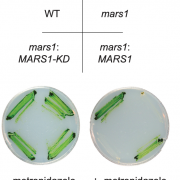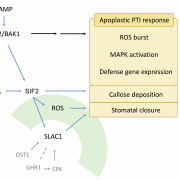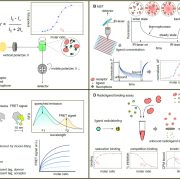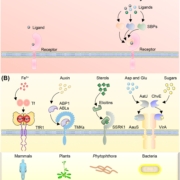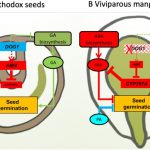Review: Optogenetics in plants (New Phytol.)

Optogenetics is the process by which light can modify cellular behavior, through the action of light-sensitive proteins or other molecules. In many respects, optogenetics seems more like science fiction than reality; the realization that neural activity in the brain can be altered through pulses of light certainly seems ripe for abuse. However, like any technology, it also has beneficial applications, and those in plants are the focus of this review by Christie and Zurbriggen. They first note that plants produce many light-sensitive proteins (e.g., phytochromes, cryptochromes) that enrich the optogenetic toolbox. However, the presence of these endogenous proteins also complicates optogenetic applications, so several approaches are being used to engineer optogenetic modules with specific outcomes. A few of these are described here, including the use of a blue-light activated ion channel that enhances stomatal responsiveness and leads to greater biomass accumulation under fluctuating light conditions. Stay tuned, as the potential applications of optogenetics in plants (and people!) are just beginning to be realized. (Summary by Mary Williams @PlantTeaching) New Phytol. 10.1111/nph.17008


